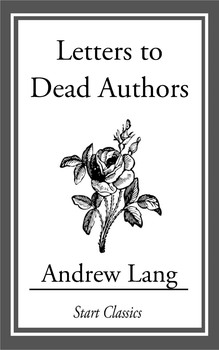LETTER–To Charles Dickens
byLetter to Charles Dickens begins not with division, but with a call for balance—between voices, between readers, between the living force of your imagination and the measured realism of your great peer, Thackeray. Though their methods differed, both you and he worked toward understanding the heart of humanity, seen not only in drawing rooms but also in workhouses and alleys. The letter dismisses petty rivalry, instead urging appreciation of how both authors shaped the English novel. Your pages, Charles, carry more than story; they carry the pulse of the people. From the streets of London to the quiet grief of childhood loss, your pen moved across society with precision and sympathy. Yet, some readers now mock your devout admirers, those who mimic your phrases but forget your depth, treating your craft as a costume rather than a study of sorrow and joy.
While many cherish “David Copperfield” as a sanctuary of memory and heart, others recoil from the cheeriness of “Pickwick,” misunderstanding that humor and insight are not opposites. The decline of comic genius in English letters has been noted by many, as has the public’s diminishing appetite for the hearty satire once found in taverns and markets. You, Dickens, were heir to that tradition—laughter not just as relief, but as rebellion, especially when wielded by Sam Weller or the irrepressible Mrs. Gamp. These characters were drawn with affection, never contempt, preserving a warmth that survives long after fashion changes. What is lost today may not be your storytelling, but the readiness of readers to meet your work with open hearts. In a world rushing forward, the patience needed to sit with your sentiment is increasingly rare. Still, the best of your tales endure, not in scholarly footnotes, but in the quiet joy they bring to those who still stop to listen.
Some question your emotional candor, particularly in moments where children weep and die too gracefully. The passing of Little Nell, once regarded as heartbreaking, now earns skepticism or ridicule, viewed by some as excessive or overly choreographed. But art changes with its audience, and tears do not obey time. Those who mock your sentiment often forget how deeply it resonated with readers who had seen real sorrow and found in your pages a gentler mirror. The ache of Paul Dombey’s silence or the tremble of Esther Summerson’s voice still stir something human, even in those who resist it. If your compassion is seen as old-fashioned, perhaps it is the world—not your words—that has hardened. And even if your tone no longer aligns with popular cynicism, it stands all the more important for its difference.
Critics argue that your plots stretch too far, indulging the grotesque and the gothic in ways that test belief. Yet those exaggerations are not weakness but style—shadows made larger to cast truth more boldly. In your darker tales, the fog of London seems alive, and characters like Quilp or Miss Havisham enter the mind with such force they could never be forgotten. Improbable, yes—but so is life, and you never claimed to write manuals. You wrote dreams that carried just enough realism to sting. And even your villains, often cast in grotesque forms, reflected social decay with more clarity than any parliamentary report. Fiction has rarely served justice as memorably as when you handed it to your readers on printed pages, wrapped in humor, pathos, and the occasional shiver.
Though our world now prizes irony and understatement, there remains a need for the directness you offered. When truth was needed, you gave it, even if dressed in drama. Your works reached millions not because they were easy, but because they were sincere. That sincerity, often mistaken for sentimentality, is what made your novels more than entertainment—they were companions. The concerns you raised—poverty, cruelty, injustice—remain with us. So do the virtues you championed: kindness, integrity, perseverance. If readers today find you too earnest, let them remember that earnestness is not weakness, but moral strength expressed with clarity. The day may yet come when your voice, full of fire and compassion, will again be the one most needed.
To love your books is not simply to love the past. It is to believe that storytelling, when done with purpose, can shape a better future. You reminded us that laughter could be sharp, that tears could be meaningful, and that every person—no matter how small—deserved to be seen. Whether your scenes unfolded in a crumbling workhouse or a joyous parlour, your purpose remained the same: to show life not as it should be, but as it could be, through the lens of heart and humor. If modern tastes change, your truth does not. And as long as stories are told to remind us of who we are and who we ought to be, your name will not fade.

